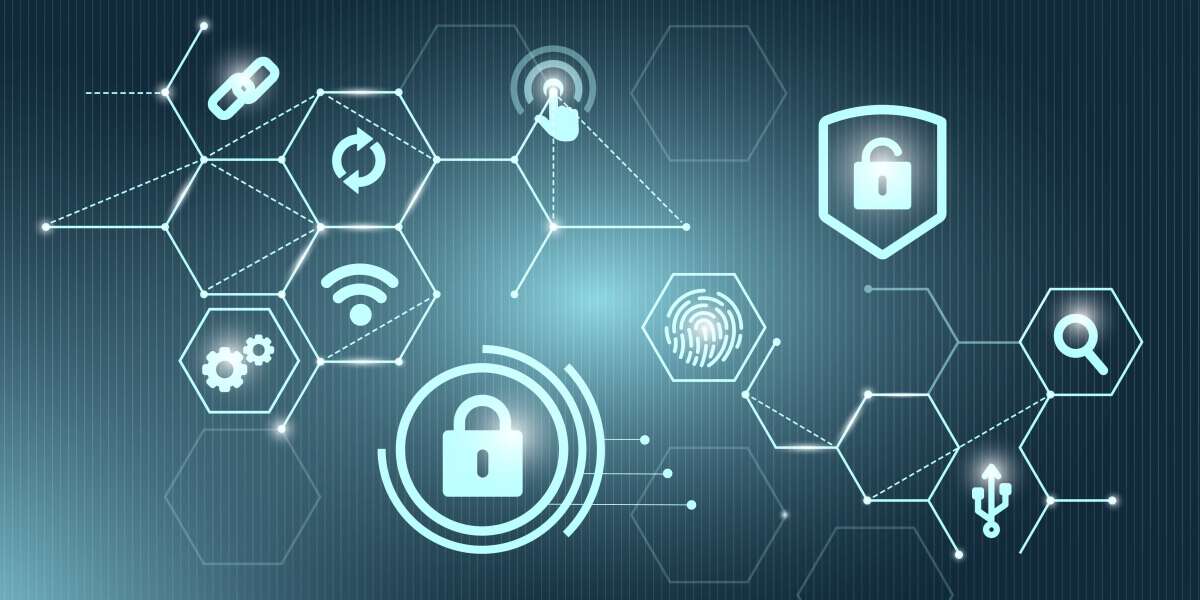In today's digital age, cyber security is more important than ever before. With the rise of cybercrime, it is crucial for businesses and individuals alike to have a strong understanding of cyber security and the skills needed to protect their online presence. That's where cyber security courses come in.
Cyber security courses are designed to educate individuals on the various aspects of cyber security, including threat detection and prevention, network security, encryption, data protection, and more. These courses can range from basic introductory classes to more advanced courses designed for professionals in the field.
Why Take a Cyber Security Course?
There are several reasons why individuals may choose to take a cyber security course. For starters, cyber security is a growing field with a high demand for skilled professionals. Taking a cyber security course can help individuals develop the skills and knowledge needed to pursue a career in this field.
In addition, taking a cyber security course can help individuals protect themselves and their businesses from cyber threats. With the increasing amount of sensitive data being stored online, it is important to have a strong understanding of cyber security best practices and how to keep your data safe.
What Types of Cyber Security Courses are Available?
There are a wide variety of cyber security courses available, each designed to meet the needs of different individuals and skill levels. Here are a few examples:
Introductory Cyber Security Courses: These courses are designed for individuals who are new to cyber security and want to learn the basics. They cover topics such as threat detection and prevention, network security, and data protection.
Advanced Cyber Security Courses: These courses are designed for professionals in the field who want to expand their knowledge and skills. They cover topics such as malware analysis, reverse engineering, and ethical hacking.
Online Cyber Security Courses: Online courses are a popular option for individuals who want to learn at their own pace and on their own schedule. These courses cover a wide range of topics and can be found on platforms such as Coursera, Udemy, and edX.
Certifications: Cyber security certifications are designed to validate an individual's knowledge and skills in the field. Examples of certifications include the Certified Information Systems Security Professional (CISSP) and the Certified Ethical Hacker (CEH).
Bootcamps: Cyber security bootcamps are intensive courses that aim to teach individuals the skills needed to pursue a career in the field in a short period of time. They typically last between 8-12 weeks and cover a wide range of topics.
There are many benefits to taking cyber security courses, including:
Improved Cyber Security Skills: Cyber security courses provide individuals with the knowledge and skills needed to identify, prevent, and mitigate cyber threats. This includes understanding how to protect networks and data from attacks, detecting and responding to incidents, and implementing effective security measures.
Career Advancement: Cyber security is a growing field with a high demand for skilled professionals. By taking a cyber security course, individuals can improve their career prospects by acquiring new skills and certifications that demonstrate their expertise in the field.
Increased Awareness of Cyber Threats: Cyber security courses teach individuals about the latest cyber threats and attack vectors, which helps them better understand the risks associated with their online presence. This can lead to better decision making when it comes to protecting personal and business data.
Compliance with Regulations: Many businesses are subject to cyber security regulations and compliance requirements, such as the General Data Protection Regulation (GDPR) and the Payment Card Industry Data Security Standard (PCI DSS). Cyber security courses can help individuals and businesses stay up-to-date with these regulations and ensure compliance.
Reduced Risk of Cyber Attacks: By understanding how cyber attacks work and how to prevent them, individuals and businesses can reduce their risk of being targeted by hackers and cyber criminals. This can help protect sensitive data and prevent financial loss.
Improved Business Reputation: In today's digital age, consumers expect businesses to take cyber security seriously. By investing in cyber security training and implementing effective security measures, businesses can improve their reputation and build trust with their customers.
Cost Savings: Cyber attacks can be costly, both in terms of financial loss and reputational damage. By investing in cyber security courses and implementing effective security measures, businesses can reduce their risk of being targeted and save money in the long run.
In conclusion, cyber security courses offer a wide range of benefits, including improved skills, career advancement, increased awareness of cyber threats, compliance with regulations, reduced risk of cyber attacks, improved business reputation, and cost savings. By investing in cyber security training, individuals and businesses can better protect themselves and their online presence from cyber threats.
How to Choose the Right Cyber Security Course?
With so many cyber security courses available, it can be difficult to know which one to choose. Here are a few tips to help you make the right choice:
Consider your goals: What do you want to achieve by taking a cyber security course? Do you want to pursue a career in the field, or do you just want to learn how to protect yourself online? Knowing your goals will help you choose a course that is right for you.
Look at the course content: Make sure the course covers the topics you are interested in and provides the level of detail you need.
Check the credentials of the instructor: Look for courses taught by instructors with relevant experience and credentials in the field.
Check reviews and ratings: Look for courses with positive reviews and high ratings from other students.
Consider the format: Do you prefer online courses, in-person classes, or bootcamps? Choose a format that works best for your learning style and schedule.
In conclusion, cyber security courses are an essential investment for anyone who wants to learn how to protect themselves or their business from cyber threats. The benefits of taking cyber security courses include improved skills, career advancement, increased awareness of cyber threats, compliance with regulations, reduced risk of cyber attacks, improved business reputation, and cost savings.
With the increasing number of cyber attacks and data breaches, it has become crucial for individuals and businesses to take cyber security seriously. Cyber security courses provide individuals with the knowledge and skills needed to understand and prevent cyber attacks, ultimately leading to a safer online environment.
Cybersecurity courses are essential in today's digital age to protect our online activities, personal information, and digital assets from various cyber threats. These courses can be beneficial for individuals looking to pursue a career in cybersecurity, as well as businesses that want to train their employees to protect their information systems and networks.
There are many different types of cybersecurity courses available, ranging from introductory to advanced levels. Some courses focus on specific areas such as network security, data security, or cloud security, while others provide a comprehensive overview of cybersecurity concepts and best practices.
It is essential to choose a course that fits your level of expertise and career goals. Some courses may be more technical and require prior knowledge of programming or networking, while others may be more geared towards policy and management roles.
Overall, cyber security courses are a great investment in your career and personal security. They can provide you with the skills and knowledge necessary to protect your digital assets and contribute to a safer online environment.

![Immunity Support Ingredients Market Report [2023-2030] | Forecast Research Report](https://youslade.com/upload/photos/2023/04/U8AWfHgBfbYIZfGmrofT_17_aca6fb2ae1e341311700246e940bf970_image.jpg)
